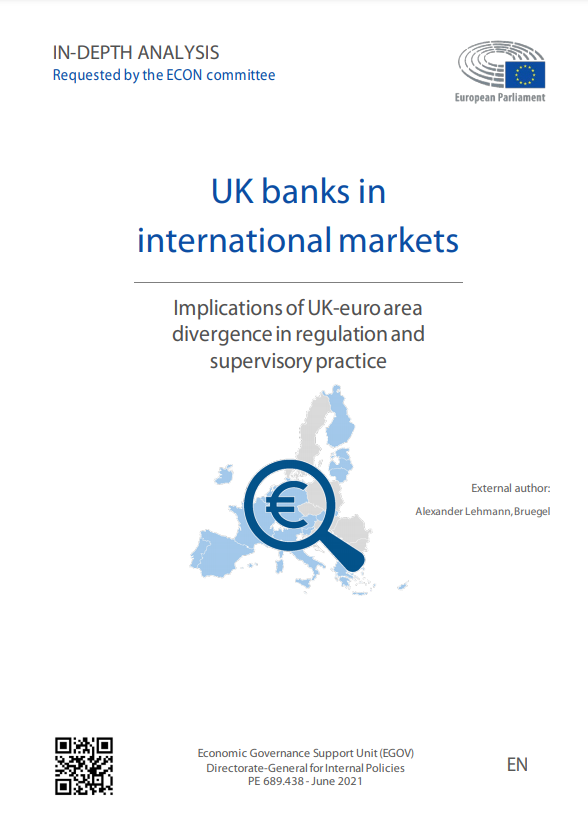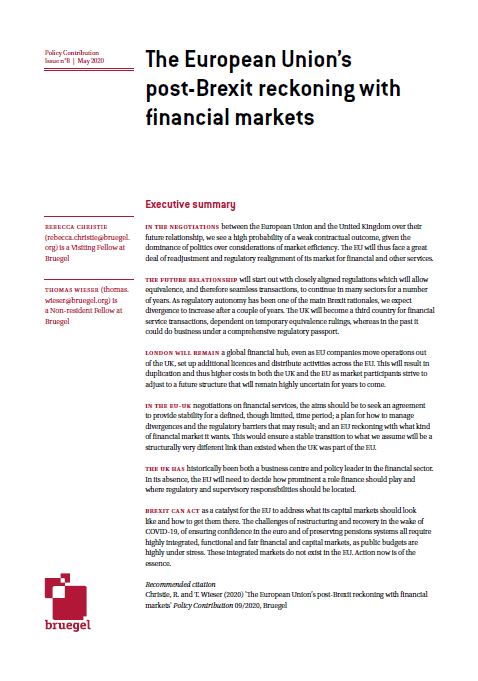Opinion
How a second referendum could be the best way to overcome Brexit impasse
A new vote based on the revocation (or not) of Article 50 would give the UK government a clear signal to proceed in one direction or another, and thus trim down the number of options being touted – most of which are unworkable as things stand.
The harsh realities of Brexit – realities that have always been present – are becoming increasing visible as the end of the process nears.
Amid this distinct game of bluffs, threats and intransigence, there is one certainty: in the absence of anything else, the UK will officially leave the EU at the end of March 2019 without a deal.
Hard Brexit is the default option. What this means is that if the British parliament chooses to vote down the prime minister’s current deal, it is implicitly choosing No Deal as the only real alternative. It is in the nature of default options, though, that they are not as obvious to everyone as they should perhaps be.
In the parliamentary debate, the prime minister has proved unable to sell the withdrawal agreement because the purported alternatives are a confused set of irrelevant options. All scenarios that are discussed in the public domain – from EFTA to Norway-plus and Canada-plus – are not options that are actually on offer. At best, they are options to be negotiated in the future.
The paradox here is that avoiding a hard Brexit is perhaps the only option that would achieve a majority in the British parliament. In order to avoid No Deal, it would be necessary to put No Deal on the table, so that it becomes a direct object of choice and not a hidden default option.
What is on offer is the ‘May deal’. The idea that the UK can still negotiate with the EU is just a postponement of the “rendezvous with Brexit reality.” The EU is not prepared to re-open a hard-achieved result. The backstop – that is, the guarantee needed to avoid a hard border between Norther Ireland and the Republic of Ireland – is the issue most hotly contested by the UK at present. But this insurance was necessary for the agreement to be achieved, as the EU has little trust in the UK political process. There is no evidence that this guarantee is no longer needed; therefore the EU is not prepared to re-open the issue.
At the same time, the Tory party is well and truly divided on this ‘May deal’ – a fact confirmed by the result of the recent confidence vote on the prime minister’s leadership, despite the outcome. The same is true for Parliament, which means that the chances of the ‘May deal’ passing are slim. It looks, therefore, like neither side of the negotiating table is likely to budge, in which case we have to accept that the odds today are increasingly in favour of No Deal.
The paradox here is that avoiding a hard Brexit is perhaps the only option that would achieve a majority in the British parliament. In order to avoid No Deal, it would be necessary to put No Deal on the table, so that it becomes a direct object of choice and not a hidden default option.
The issue of the referendum had previously met resistance, not least from the prime minister herself, but is increasingly emerging as a realistic option.
One possible way to untangle the political impasse is to have a second referendum. The issue of the referendum had previously met resistance, not least from the prime minister herself, but is increasingly emerging as a realistic option. James Blitz of the Financial Times has considered what the referendum could ask, offering three variants:
- Remain vs May’s deal. This does not, in our view, provide an attractive option to those who want Brexit, irrespective of which Brexit.
- This is why, in the second variant, there is an additional option of No Deal, next to ‘Remain vs May’s deal’. But this is a three-way referendum, which is not easy to communicate or implement. And it could lead to an outcome where no option has the absolute majority of votes, confusing the way forward even more.
- The third variant is Remain vs Canada-style clean break. Once again irrelevant options enter the debate. Canada-style clean break is not an option on the table and should not therefore be an option on the ballot. This variant effectively boils down to Remain vs No Deal. But it is odd not to provide a chance for people to accept the government’s current deal (May’s deal) as one of the options.
But there is another way, which the recent ECJ decision on revoking Article 50 may just have brought to the fore. Following this decision, Sir John Major has called for Article 50 to be revoked immediately. We fear that such an action would lack legitimacy and that a referendum would be the minimum requirement to ensure sufficient backing.
If the referendum were the path to pursue, there is then an additional variant to what could be asked, and that is a yes/no question:
- Given what you know now, would you opt to revoke Article 50? This we believe is effectively the same as the aforementioned second option, but without the three-way referendum. Let’s look a little closer at what it means.
The main significance of the ECJ ruling is that it recognises a country’s sovereignty and therefore its right to change its mind. At the same time, it provides important clarifications on how and when such an option should be exercised. The court has put in place conditions in order to ensure that such an action is not opportunistic or expedient, as it would have to be “unequivocal and unconditional”. But it also provides clarity in terms of where it leaves this whole process and the UK’s position in the EU. The withdrawal process would be stopped and the UK would continue its membership status as is, without losing its opt-outs or rebate. At the same time, it would be providing reassurance to the EU, in that the UK’s exercising of this option would mean that it has changed its collective mind on the issue of Brexit.
If you are a Remainer you would welcome such an option. If you had voted for Brexit but have changed your mind given the information available two-and-a-half years later, then again this would be a welcome step. If the ‘Yes’ vote prevailed and the government pursued this option, all uncertainty would cease and only awkwardness would remain, till everyone learned to move on.
If you are a committed Brexiter, then the ‘No’ option still allows you to proceed on the current track. If a ‘No’ vote prevailed, it would provide clarity on two things: first, it would seal the UK’s wish to leave the EU – a certainty that would be helpful in moving forward. Second, it would bring the default position out of obscurity: there would be only two options ahead and that is May’s deal or No Deal. Parliament would then need explicitly to choose one of the two, instead of just rejecting one.
But that brings us back to our starting point. If there is a majority against a no-deal Brexit, then this referendum may be what the prime minister needs to pass her deal. Either way, there would be clarity in terms of what the British actually want, an issue that can be of great help in this process.
Republishing and referencing
Bruegel considers itself a public good and takes no institutional standpoint.
Due to copyright agreements we ask that you kindly email request to republish opinions that have appeared in print to [email protected].








